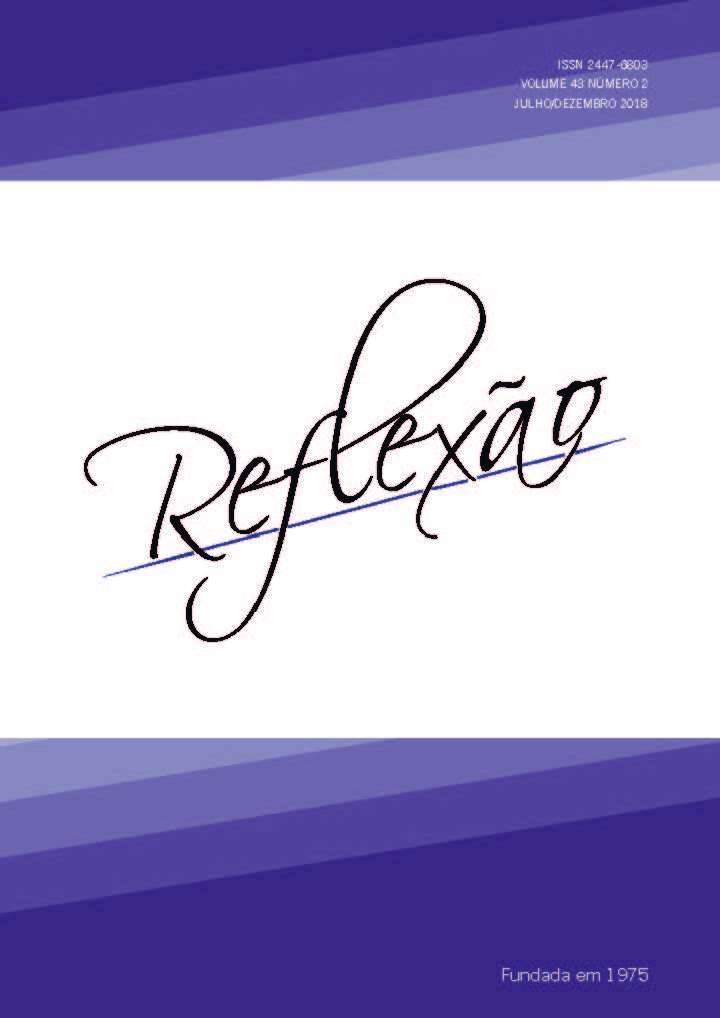O método arqueológico no pensamento contemporâneo
DOI:
https://doi.org/10.24220/2447-6803v43n2a4271Palavras-chave:
Arqueologia. Edward Said. Giorgio Agamben. Michel Foucault. Origem. Sigmund Freud.Resumo
Inspirando-se principalmente nos filósofos contemporâneos Michel Foucault e Giorgio Agamben, este ensaio sugere que, para se pensar o conceito de origem ou uma arché, deve-se primeiramente partir de uma “arqueologia” que toma como ponto de partida a “origem” do falso sagrado. Em outras palavras, a tarefa arqueológica imprescindível deve ser redefinida através da identificação de suas formas falseadas (ideológicas), a fim de compreendermos melhor tanto os métodos da arqueologia (como uma regressão, mas não a um ponto histórico de origem) quanto as apostas políticas da arqueologia. Isso significa levar a sério as complexidades das fontes e tradições que informam o que as pessoas consideram ser uma narrativa sacralizada assim como os meios de transmissão que as influenciam.Downloads
Referências
ADORNO, T.W. Resignation, critical models: Interventions and Catchwords. New York: Columbia University Press, 1998.
AGAMBEN, G. Philosophical Archaeology, the signature of all things: On Method. New York: Zone, 2009. p.89-107.
AGAMBEN, G. The use of bodies. Stanford: Stanford University Press, 2016. p.273-278.
ANDERSON, B. Imagined communities: Reflections on the origin and spread of nationalism. London: Verso, 1983.
CLAUSSEN, D. Theodor W. Adorno: One last genius. Cambridge: Belknap Press, 2008.
DERRIDA, J. On the name. Stanford: Stanford University Press, 1995.
DERRIDA, J. Archive Fever: A Freudian impression. Chicago: University of Chicago Press, 1996.
DICKINSON, C.; KOTSKO, A. Agamben’s coming philosophy: Finding a new use for theology. London: Rowman and Littlefield, 2015.
FOUCAULT, M. Cogito and the history of madness. In: DERRIDA, J. Writing and difference. London: Routledge, 1978. p.31-63.
FOUCAULT, M. Nietzsche, genealogy, history. In: FOUCAULT, M. The Foucault Reader. New York: Pantheon, 1984. p.76-100.
FOUCAULT, M. Power/Knowledge: Selected interviews and other writings: 1972-1977. New York: Pantheon, 1980. p.83.
FOUCAULT, M. The archaeology of knowledge. London: Routledge, 1989. p.83-196.
FOUCAULT, M. Abnormal: Lectures at the Collège de France, 1974-1975. New York: Picador, 2003.
FOUCAULT, M. The Hermeneutics of the Subject: Lectures at the Collège de France, 1981-1982. New York: Picador, 2005. p.11.
FOUCAULT, M. Lectures on the will to know: Lectures at the Collège de France, 1970-1971, and oedipal knowledge. London: Palgrave-MacMillan, 2013. p.202-208.
FOUCAULT, M. On the government of the living: Lectures at the Collège de France, 1979-1980. New York: Palgrave Macmillan, 2014. p.78-79.
GIRARD, R. Things hidden since the foundation of the world. Stanford: Stanford University Press, 1987. p.437-438.
GUTTING, G. Michel Foucault’s archaeology of scientific reason. Cambridge: Cambridge University Press, 1989. p.272-287.
HAN, B. Foucault’s critical project: Between the transcendental and the historical. Stanford: Stanford University Press, 2002.
HODDER, I. Sustainable time travel: Toward a global politics of the past. In: Kane, S. (Ed.). The politics of archaeology in a global context. Boston: Archaeological Institute of America, 2003. p.139-147.
INSOLL, T. Archaeology, ritual, religion. London: Routledge, 2004.
JENNINGS, M. The Will to Apokatastasis: Media, experience, and eschatology in Walter Benjamin’s late theological politics. In: DICKINSON, C.; SYMONS, S. (Ed.). Walter Benjamin and Theology. New York: Fordham University Press, 2016. p.93-109.
KOHL, P.; FAWCETT, C. (Ed.). Nationalism, politics, and the practice of archaeology. Cambridge: Cambridge University Press, 1995.
KOOPMAN, C. Genealogy as critique: Foucault and the problems of modernity. Bloomington: Indiana University Press, 2013.
LATOUR, B. We have never been modern. Cambridge: Harvard University Press, 1993.
MAHON, M. Foucault’s Nietzschean genealogy: Truth, power, and the subject. Albany: State University of New York Press, 1992. p.179.
MALINA, J.M.; VAŠÍČEK, Z. Archaeology yesterday and today: The development of archaeology in the sciences and humanities. Cambridge: Cambridge University Press, 1990. p.263.
McNIVEN, I.J.; RUSSELL, L. Appropriated pasts: Indigenous peoples and the colonial culture of Archaeology. New York: AltaMira Press, 2005.
MESKELL, L. (Ed.). Archaeology under fire: Nationalism, politics and heritage in the eastern Mediterranean and middle east. London: Routledge, 1998.
RICOEUR, P. Freud and philosophy: An essay on interpretation. New Haven: Yale University Press, 1970. p.446-459.
RUHL, S. 100 essays I don’t have time to write: On umbrellas and sword fights, parades and dogs, fire alarms, children, and theater. New York: Faber and Faber, 2014. p.197-198.
SACHS, N. O the Chimneys: Selected poems, including the verse play. New York: FSG, 1967. p.232-233.
SAID, E. Freud and the Non-European. London: Verso, 2003. p.44-54.
SMITH, L. Archaeological theory and the politics of cultural heritage. London: Routledge, 2004.
SMITH, L. Uses of heritage. London: Routledge, 2006.
TRIGGER, B.G. A history of archaeological thought. 2nd ed. Cambridge: Cambridge University Press, 2006.












